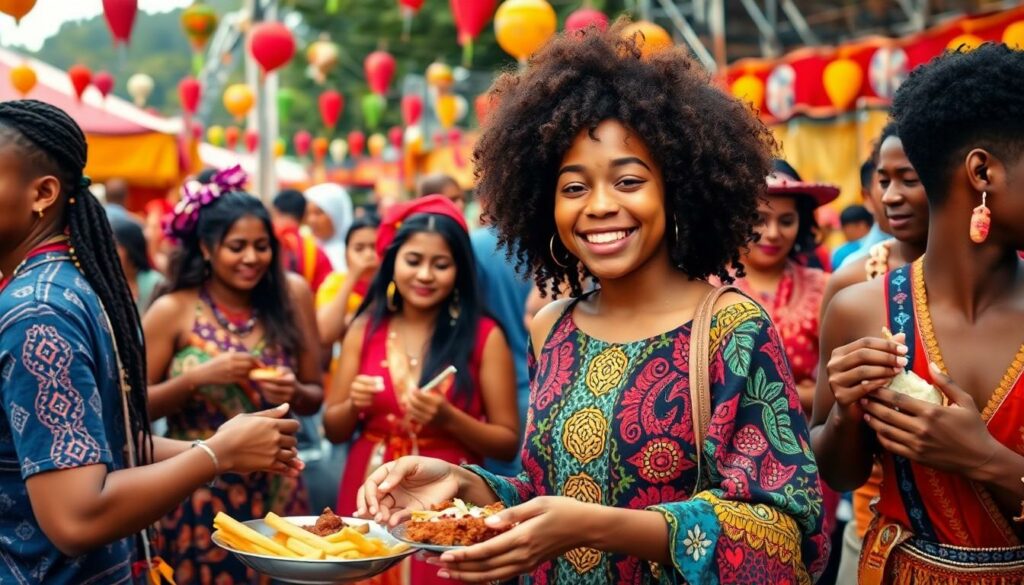Cultural wellness isn’t just a buzzword; it’s the secret sauce to a fulfilling life. Imagine a world where your cultural identity thrives, sparking joy and connection in every interaction. It’s like finding the perfect playlist for your soul—one that makes you dance through life’s challenges and relish its celebrations.
Table of Contents
ToggleUnderstanding Cultural Wellness
Cultural wellness represents a key aspect of overall well-being. It involves recognizing and honoring diverse cultural backgrounds, practices, and values.
Definition of Cultural Wellness
Cultural wellness is the ability to engage with and appreciate one’s own culture and those of others. It signifies a deep connection to traditions, customs, and beliefs that help shape identity. Engagement with various cultural perspectives fosters a sense of belonging. Individuals who practice cultural wellness explore heritage through art, language, and community activities, enriching their lives. Recognizing the significance of cultural narratives enhances personal development.
Importance of Cultural Wellness
Cultural wellness plays a crucial role in promoting social connections and emotional resilience. Engaging with diverse cultures broadens perspectives, fostering understanding and empathy. Individuals who prioritize cultural wellness often experience enhanced joy and satisfaction in life. Celebrating cultural diversity strengthens community ties and encourages inclusivity. Practicing cultural wellness leads to improved mental health and overall life satisfaction, equipping individuals to face challenges effectively. Overall, cultural wellness is indispensable for personal growth and societal harmony.
Key Components of Cultural Wellness

Cultural wellness consists of various components that significantly enhance the sense of joy and connection in individuals. Among these, identity and belonging, along with cultural competence, play crucial roles.
Identity and Belonging
Identity and belonging form the foundation of cultural wellness. Recognizing one’s roots fosters a stronger self-concept. Engaging with cultural practices creates bonds with family members and communities. Experiencing traditions reinforces individual identity, linking personal history with community narratives. A sense of belonging not only enriches individual lives but also strengthens communal ties, leading to increased support networks.
Cultural Competence
Cultural competence represents another essential component of cultural wellness. Understanding and appreciating diverse cultures enables individuals to create meaningful connections. Learning about various customs, traditions, and beliefs enhances empathy and respect. Practicing open-mindedness encourages individuals to engage with different perspectives. Increased cultural competence promotes inclusivity, allowing for cooperative and harmonious living within diverse communities.
Benefits of Cultural Wellness
Cultural wellness significantly enhances both individual experiences and community dynamics. Engaging in various cultural practices promotes well-being and a sense of belonging.
Personal Growth and Development
Personal growth flourishes through cultural engagement. Individuals gain deeper self-awareness by exploring their own cultural roots and those of others. Increased empathy often results from understanding diverse perspectives, enriching personal development. Cultural wellness empowers individuals to reflect on their values, ultimately fostering stronger identities. Learning about varying traditions encourages adaptability, enhancing one’s ability to navigate different situations. Participation in cultural activities also builds resilience, as it often challenges preconceived notions. Individuals who embrace cultural wellness frequently report increased satisfaction in their lives and heightened overall happiness.
Community Building
Community building thrives on cultural wellness. Shared cultural experiences unite individuals, fostering strong interpersonal connections. Celebrating diverse traditions strengthens community ties and promotes inclusivity. As individuals engage in cultural events, they cultivate a shared sense of purpose and belonging. Such gatherings often create supportive environments that encourage collaboration. Diversity in culture enhances creativity and innovation, attracting various perspectives for problem-solving. Communities that prioritize cultural wellness often experience enhanced social cohesion and collective well-being. This sense of belonging ultimately contributes to a more harmonious and resilient society.
Strategies to Enhance Cultural Wellness
Cultural wellness promotes deeper connections and personal growth. Implementing effective strategies can significantly improve one’s cultural engagement.
Engaging with Diverse Cultures
Exploring a variety of cultures fosters greater understanding and respect. Attending cultural festivals offers an immersive experience in unique traditions. Participating in community events can create opportunities for meaningful discussions about diverse backgrounds. Reading literature from different cultures expands perspectives and enhances empathy. Travelling to new places can deepen appreciation for global customs and practices. Volunteering in multicultural settings builds bridges among different groups in the community. Engaging actively promotes inclusivity and reinforces a sense of belonging.
Practicing Cultural Mindfulness
Practicing cultural mindfulness involves being aware and appreciative of cultural differences. Setting aside time to reflect on one’s cultural experiences cultivates self-awareness and emotional resilience. Journaling about encounters with cultural diversity encourages personal growth and understanding. Establishing routines that incorporate cultural traditions, like meals or family celebrations, strengthens ties to heritage. Attending workshops on cultural competency enriches knowledge and skills for effective communication. Engaging in mindful listening during cultural exchanges enhances empathy and connection. Prioritizing cultural mindfulness creates a richer, more fulfilling life experience.
Challenges to Cultural Wellness
Barriers exist that can hinder cultural wellness. Various societal factors impact individuals’ abilities to connect with their culture and others.
Societal Barriers
Societal barriers often impede cultural wellness. Limited access to cultural spaces, programs, and resources restricts community engagement. Economic disparities create obstacles for marginalized groups, impacting their ability to participate in cultural activities. Additionally, systemic discrimination presents ongoing challenges, contributing to feelings of isolation. Communities without adequate support networks experience difficulty in fostering inclusivity. Lack of representation in media also perpetuates these barriers, diminishing the visibility of many cultures. People navigate these hurdles daily, impacting their overall sense of belonging.
Misunderstandings and Stereotypes
Misunderstandings and stereotypes pose significant obstacles to cultural wellness. Many individuals hold preconceived notions about cultures different from their own. These misconceptions lead to generalizations that fail to recognize the richness and depth of diverse traditions. Such stereotypes often result in marginalization or exclusion, deepening divides between groups. Open dialogue remains crucial for overcoming these barriers. Increased awareness can help dismantle harmful stereotypes and promote appreciation of cultural uniqueness. Engaging with diverse narratives allows individuals to challenge their biases and expand their understanding of cultural similarities and differences.
Cultural wellness is essential for fostering deeper connections and enhancing individual well-being. By embracing diverse cultural practices and perspectives, individuals not only enrich their lives but also contribute to stronger communities. Engaging with one’s own culture while appreciating others cultivates empathy and resilience, leading to a more fulfilling life experience.
As people navigate the complexities of modern society, prioritizing cultural wellness can transform interactions and promote inclusivity. A commitment to understanding and celebrating cultural diversity lays the groundwork for a harmonious and supportive environment, benefiting both individuals and their communities.





